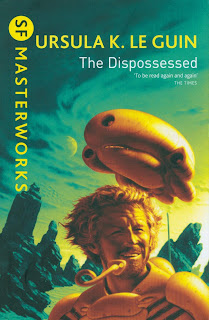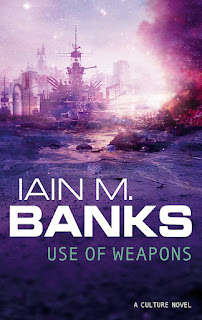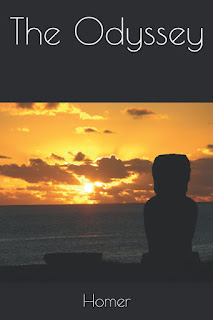Book - Pennyblade
Do we really live our lives from birth to death? Really? This morning, did you just get out of bed and make breakfast or did the rustle of the cornflakes falling into the bowl jumpstart some childhood memory, say? The past can strike at any time, often when our senses least expect it. Our lives are never straightforward, they haven’t the simplicity of a river’s flow or a path’s descent. We’re too human for that.
Great stories often reflect this lived experience, which is as it should be. But some novels deliberately lean into non-linearity, jumping backward and forward chapter by chapter or even scene by scene.
Such stories have been on my mind recently, what with the upcoming publication of my high fantasy novel, Pennyblade. Pennyblade follows a disgraced and exiled noble who has fallen into the life of a mercenary. That is, in one timeline of the novel. In another timeline set four years earlier we get to see exactly how she fell. These two strands twist around each other and eventually merge. Some stories just work best that way.
The following books - apart from one - were a profound influence upon Pennyblade and its structure. Non-linear narrative can reveal character and hide secrets in ways traditional narrative cannot. These authors revel in that truth and its magic.
The Dispossessed by Ursula K. LeGuin
As memory serves The Dispossessed was my first introduction to novels that avoid going from point A to point B. It’s first on my list for that reason but also because it’s a fine introduction for anyone hungry for something non-linear in their reading life.
Shevek, the greatest physicist of his era, has discovered the theoretical key to instant communication anywhere in the universe. The Dispossessed’s chapters alternate between two timelines and two worlds. The first, set in the years leading up to the second narrative, takes place on Shevek’s home world of Annares, an anarchic yet peaceful place with no use for centralised government or even personal possessions. The second narrative takes place upon Annares’ neighbouring planet, Urras, as Shevek tries to make his theory a scientific reality. He soon finds himself in strange realms of market capitalism and authoritarian communism, not to mention an all-pervading patriarchy.
LeGuin’s 1973 novel alternates between satire, political criticism, and an exploration of social possibility, most of it thanks to a structure that eschews a straight path.
Use Of Weapons by Iain M. Banks
‘Twist’ is a term that’s garnered a certain cheap and flashy notoriety, one all too often earned. But Iain M. Banks’ Use Of Weapons, a novel from his space opera series set in the techno-utopia of the Culture, has for me the greatest reverse in literature, delivering so much in terms of the novel’s themes. I can say no more for fear of spoilers.
Weapons is a story that could never function told in a straight line. It is a magic trick, a slight-of-narrative, and I am in awe of it as much as I was decades past when a friend first shoved it into my hands.
Two narratives make up Use Of Weapons, both from the viewpoint of a super-soldier called Zakalwe. Set in alternating chapters much like The Dispossessed, one narrative runs chronologically forward, following Zakalwe on a mission for the Culture, whereas the other narrative runs backwards, permitting us a view into the events that made this most singular man.
Eventually both strands collide with all the pyrotechnic glory of two faster-than-light battleships with a death wish. It’s an incredible use of non-linear storytelling, all the more remarkable for the fact said structure was devised in a much later draft and at the suggestion of Banks’ friend and fellow SF author, Ken MacLeod.
The Odyssey by Homer
No seriously. Non-linear narrative, far from postmodern, is at least as old as written narrative itself. Homer always begins, as the Roman poet Horace termed it, in res media: ‘in the middle of things. Thus, at the start of the epic poem, our hero Odysseus’, er, odyssey, is already mostly over and done with.
All those fabulous encounters - the cyclops, Scylla and Charybdis, the sirens and all the rest - are recounted by Odysseus to the royal court of the Phaeacians. The Phaeacians take pity on him, shower him with treasure and offer him a ship home. Scholars and critics have wondered exactly how ‘true’ this first-person narration of Odysseus’ is. Might much of it be fabricated to procure the sympathy he achieves? Odysseus is a trickster after all…
Homer (who, admittedly, might not be real himself) offers us a narrative that’s both non-linear and that switches from third to first person. Even nowadays that would be considered experimental. I suppose, to quote another work of comparable age to The Odyssey, ‘There is nothing new under the sun’.
Mother Night by Kurt Vonnegut
The obvious choice for a Vonnegut novel on this list would of course be Slaughterhouse Five, so I’m not going there. Five is far from the only Vonnegut novel to experiment with non-linearity. Ol’ Uncle Kurt spent much of his career never driving in a straight line and quickly mastered the art. As Douglas Adams said of his work, you read it the first time and you think it's very loosely, casually written, that everything suddenly (making) such good sense at the end is almost accidental. And then you read it a few more times and realise what an absolute tour de force it was, making something as beautifully honed as that appear so casual.
Mother Night, Vonnegut’s third novel, exemplifies that quality. It’s the fictional memoir of Howard W. Campbell Jr, an American who becomes one of wartime Germany’s leading propagandists. Written in a prison cell in Israel Campbell’s memoir jumps between his time in Germany to his post-war years hiding in New York, all while chatting with his gaolers and giving Adolf Eichmann writing tips. From the outset we’re given every reason to despise Campbell, but the slow and skilful unpeeling of his reminiscences reveal a man with secret motives beneath secret motives, some of which he does not fully understand himself.
Pennyblade by J.L. Worrad
Oh, come now! Of course I was going to pick this one. That said, had I approached this list in a less linear way you would have already known that by now.
Thanks again to author J L Worrad and Titan Books for a fascinating article [resulting in the addition of books to the TBR pile - Ed]. Pennyblade is available now.
ABOUT PENNYBLADE
A sharp-tongued disgraced-noble-turned-mercenary must stop the world collapsing into chaos in
this gripping, savagely funny, epic fantasy packed with unforgettable characters.
Pennyblade is a sharp and witty fantasy adventure that includes an ensemble of colourful characters and a beautiful love story between two unique women. Loosely based on the Dark Ages of Britain, Pennyblade is filled to the brim with magic, demons, and suspicion. Perfect for fans of face-paced action, heists, sword fights and killer plotting, Pennyblade will be sure to grip the hearts of its readers.
Kyra Cal’Adra has spent the last four years on the Main, living in exile from her people, her power and her past. A commrach, she’s welcome among the humans only for her rapierwork. They don't care about her highblood, which of the gleaming towers she came from, nor that her family aspires to rule the Isle.
On the Main, superstitions and monsters are in every shadow, but Kyra is haunted by the ghost of Shen, the love of her life, the lowblood servant she left behind. She survives by wit and blade alone in a land that would see her dead for who she is, for who she loves.
When her fellow pennyblades betray her, Kyra is forced to track the demon praying on the souls of the
commoners. She must tear the secret masks off to see the true face of things, as the age-old conflict between the Main and the Isle threatens to erupt once more.
ABOUT THE AUTHOR
J.L. Worrad lives in Leicester, England, and has for almost all his life. He has a degree in classical studies from Lampeter University, Wales. In 2011 James attended Clarion, the prestigious six-week SF workshop held at the University of California, San Diego. There, he studied under some of the genre's leading professional. 2018 saw the publication of his first space opera duology ‘Feral Space’. He’s had short stories published by Daily Science Fiction, Flurb, Newcon Press and Obverse Books. He also writes screen plays for short films, one of which- Flawless was selected for both the Cannes and NYC Independent film festivals.











Post a Comment